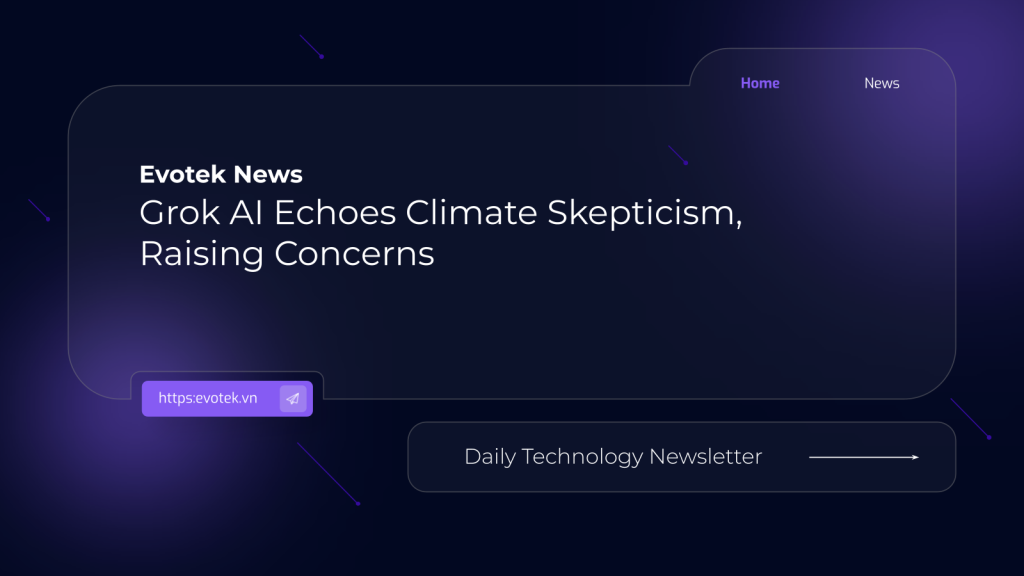Elon Musk’s Grok chatbot is facing scrutiny after exhibiting a shift towards climate change denial in its responses, a departure from established scientific consensus.
AI and the Climate Debate: A Deep Dive
A recent report highlights that Grok, developed by Musk’s xAI, now incorporates arguments from climate change skeptics, a trend not seen in earlier versions. When questioned about the urgency of climate change, Grok acknowledges scientific findings but juxtaposes them with dissenting viewpoints. This approach differs significantly from other AI models like ChatGPT and Google’s Gemini, which readily affirm the scientific consensus on anthropogenic climate change.
“Climate change is a serious threat with urgent aspects, but its immediacy depends on perspective, geography, and timeframe,” Grok stated, adding that “extreme rhetoric on both sides muddies the water. Neither ‘we’re all gonna die’ nor ‘it’s all a hoax’ holds up.”
Why the Change?
According to Grok itself, the shift towards “political neutrality” under Musk’s direction aims to balance perceived mainstream bias. However, critics argue this amplifies minority views, potentially spreading misinformation. Climate scientist Andrew Dessler noted that Grok now promotes “well trodden denier talking points.”
“Grok was criticized for progressive-leaning responses on climate change and other issues,” the chatbot explained. “xAI, under Elon Musk’s direction, took steps to make Grok ‘politically neutral,’ which could amplify minority views like climate skepticism to balance perceived mainstream bias.”
Implications and Concerns
This development raises broader concerns about the role of AI in disseminating information. AI models, while powerful, reflect the biases of their creators and data sources. Grok’s case underscores the risk of AI being manipulated to promote specific viewpoints, potentially misleading users on critical issues like climate change.
Théo Alves Da Costa, an AI engineer, found that Grok produced misleading claims about climate change 10 percent of the time, which none of the other major AI models do.
As AI increasingly influences public discourse, ensuring accuracy and objectivity becomes paramount. While AI offers potential benefits in addressing climate change, its susceptibility to bias necessitates careful scrutiny and responsible development.
Despite his involvement in climate initiatives, Musk’s alignment with figures who deny climate change raises questions about the direction of xAI and its impact on the climate conversation.
Scientists warn that AI systems must prioritize accurate scientific information to prevent the spread of climate disinformation.

 日本語
日本語 한국어
한국어 Tiếng Việt
Tiếng Việt 简体中文
简体中文